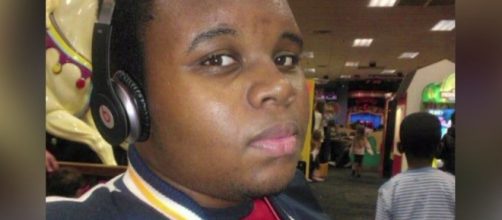The family of Michael Brown has received a settlement of $1.5 million from the city of Ferguson, ABC News reports.
On August 9, 2014, Police officer Darren Wilson shot Brown, 18, at least six times on West Florissant Avenue in St. Louis suburb, Ferguson, Mo., according to The New York Times. An autopsy revealed that Brown was shot twice in the head and four times in the right arm, according to BBC News. The teen’s death sparked a mass controversy that led to protests across the country and caused concern about how police were performing their duties.
Settlement reached in lawsuit filed by parents of Michael Brown, the Ferguson man killed by a police officer in 2014 https://t.co/QNTwgx0Lan pic.twitter.com/uUnc1wsSg5
— CNN Breaking News (@cnnbrk) June 21, 2017
ABC reports that the city’s insurance company paid for the settlement, which was split between Brown's parents, Michael Brown Sr. and Lesley McSpadden.
Unnecessary Death
Dorian Johnson, who was with Brown at the time of the Shooting, told NBC News that they were walking down the empty street when Wilson drove up in his car and told them to “get the ‘f’ on the sidewalk.” Johnson said he explained that they were a minute away from their destination when the officer pulled up, reached out of his window and grabbed Brown by the neck, attempting to pull him into the vehicle.
With one hand around his neck and one on his firearm, the officer fired. Johnson said at that moment, they took off running.
Was he guilty of a crime?
There were accusations of Brown stealing a $48.99 box of cigarillos from a nearby convenience store minutes before the shooting occurred. However, surveillance released by the New York Times shows that Brown entered Ferguson Market and Liquor earlier that day, shortly after 1 a.m. In the footage, Brown is seen handing what looks like a small bag over the counter and taking a shopping bag of cigarillos.
He walked toward the door with a sack, then turned around and handed the cigarillo back over the counter before he left the store. The footage was not presented at the time of the theft surveillance.
It raises suspicion that instead what appeared to be a robbery was a possible exchange of marijuana. Jay Kanzler, a lawyer for the convenience store employees, denied those allegations when questioned by the New York Times.
The officer claimed that Brown reached for the gun during the incident, but pathologist Dr. Baden told BBC that the autopsy showed there was no gunshot powder residue on Brown's skin, indicating that he was shot from more than two feet away. The exact distance between Brown and Wilson at the time of the shooting is unclear.
Did Brown have a record?
USA Today reports that St. Louis County Prosecuting Attorney's office revealed that Michael Brown had no prior criminal record.
He was unarmed at the time of the incident.
Mass Protests
The incident caused waives of protests throughout the city and the nation. After a grand jury chose not to indict Wilson, the city erupted. The Justice Department had to call upon Ferguson to initiate a complete overhaul of their justice system, citing constitutional violations.
But has enough been done to retrain police?
It could be argued that antidiscrimination should be taught at the academy level. It could be productive to teach the proper use firearms and how to spot a legitimate threat. Police may shoot out of fear, which alarms the general public. It raises concerns that perhaps more needs to be done at the training level. If a person appears to be a threat, officers also have the option to shoot anywhere and can avoid having to shoot to kill.
Police are provided with bulletproof vests, where civilians are most often not.
What is being done to prevent police brutality?
There have been many incidents of police brutality that went unnoticed throughout history. Now that there is a smartphone in almost every pocket, and the ability to upload anything online, we are faced with hard evidence. We are starting to learn the real stories behind deaths by the hands of police. It is particularly telling when police are afraid to wear cameras. Perhaps they are trying to hide something about how they are conducting themselves on the job.
After the Michael Brown incident, many states passed legislation requiring police to wear body cameras, and now, most police vehicles are outfitted with dashcams.
Many police organizations have expressed privacy concerns, however, officers train for the position to serve and protect US citizens. They are also allowed to carry weapons including batons, tasers, and firearms, so perhaps it is a small sacrifice to make in the name of keeping order and saving lives.


